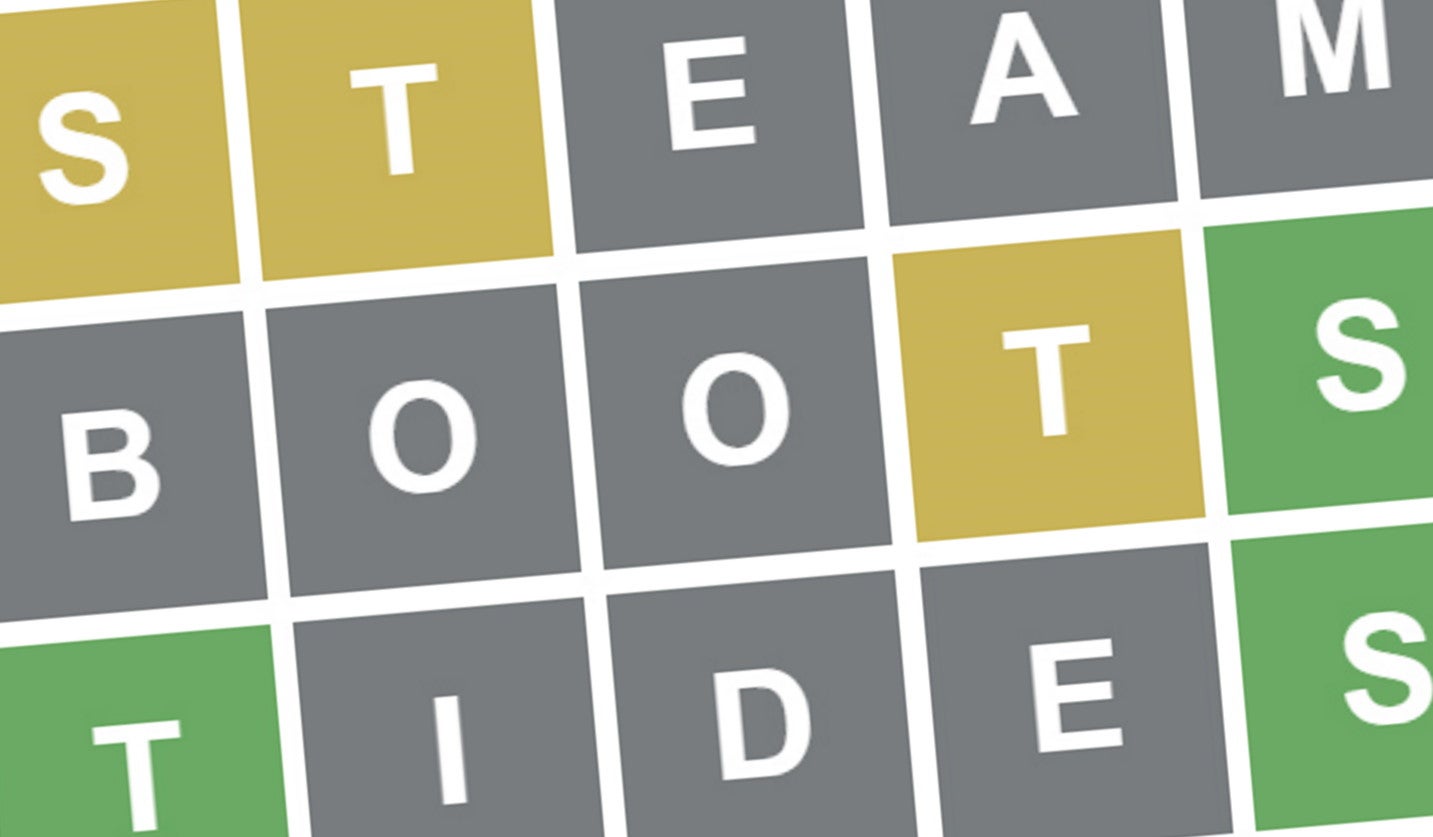It’s strange to think that for a moment in 2022, the New York Times, one of the most prestigious and respected news brands on the planet, became a global media story itself – for buying a game. Wordle wasn’t just any game though. Created by programmer Josh Wardle to amuse his partner, it was – and still is – a phenomenon; a deceptively simple word-spotting puzzle with an insanely compelling and sharable design. Launched in October 2021 it became a viral sensation, hitting two million players by December, and three million by the time the NYT purchased it at the end of January 2022.
Wordle now sits on the NYT’s renowned online games portal among the paper’s homegrown titles, including the thoughtful word search challenge, Spelling Bee, the dot-to-dot shape-maker, Vertex, and the ever compulsive Mini Crossword. The games were played almost four billion times in 2022, attracting over one million subscribers, and it’s such an important part of the paper’s remit, the service now has its own “Play” tab in the NYT News app.
Heading up Games for the paper is Jonathan Knight, a 25-year video game industry veteran who started out as a producer at Activision before moving to Electronic Arts, Warner Bros and Zynga. So what’s the secret of the NYT’s puzzling success, and what’s it like running a game studio inside a digital news operation? We sat down with him in London to find out.
So your background is in the traditional video game industry. What was it like making the move to the New York Times?
Jonathan Knight: I’ve played board games and puzzle games all my life, and really like word games, I like games with a bit of mental challenge. When I went to Zynga I was general manager on the Facebook games before pivoting into mobile, and I was there for 10 years, particularly working on casual games. I ran the Words With Friends business for a little while, I worked on Farmville. So it’s been a gradual transition, it wasn’t a shock. It felt right – although at the same time this is a very different kind of company. I was really excited when the NYT reached out – I love having meaning to this work. The mission of the company is to seek the truth, to help people understand the world, working to save democracy. It’s very rewarding to be at a company that is mission-driven. We’ve worked hard to build what we think now is a world-class gaming service, where you can play the games across multiple platforms, and there’s a unified backend. There were a lot of technical things we needed to do to bring us closer to the traditional games industry in that respect and I think we’re still on that path.
Can you tell us a little about how the Games section works. How many staff do you have, and does it function at all like a traditional game studio?
Jonathan Knight: We don’t give out team sizes, specifically, but it’s a good size operation and in many ways it is like a games studio: we have engineers and product designers, we have data analytics support and I have a group of producers keeping us all on track. I think one thing that’s a little bit different from traditional games studios is our focus on editorial: what makes us unique is that our puzzles are human crafted, curated and edited with quite a strong editorial vision and that’s part of being at the NYT, we take it very seriously. What are the crossword clues? What are the answers? What is the Wordle word of the day? There are human beings trained to do this who are touching those puzzles every day.
So, every element in each puzzle is handcrafted – there’s no automation? Can you tell us how else that editorial approach affects the games?
Jonathan Knight: With the crossword, we have established a tradition of symmetry within the grid – all NYT crosswords are symmetrical both horizontally and vertically. That establishes the feel. From there we think about difficulty – we want Mondays to be quite approachable and solvable for pretty much everyone, and then they get more challenging throughout the week. We have a beginner crossword challenge as part of our gameplay column, which has forums, tips, tricks, articles, that’s a sort of sibling to our games product itself – we think a lot about how to help people become better solvers.
